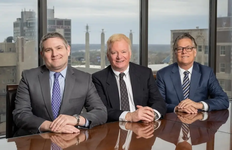The CDC has been monitoring the prevalence of Autism in eight-year-old children in eleven states since 2000. In 2020, the overall ASD prevalence was 1 in 36 children. This represents a significant increase in prevalence since the year 2000 when the CDC reported that 1 in 150 children were diagnosed with Autism by the age of 8.
Developmental disabilities like Autism remain complex and challenging to understand and manage, despite advancements in research and treatment. Mariela Vargas-Irwin, Executive Director of Applied Behavioral Learning Services (ABLS), advocates for a deeper understanding of mental illness and the transformative power of acceptance and change, highlighting the need for effective coping strategies and acceptance in this complex field.
Autism, often misunderstood as a monolithic condition, is, in reality, a continuum - a spectrum of diverse experiences, strengths, and challenges. Yet, prevailing narratives have long been dominated by a deficit-based model, focusing on eradicating autistic traits rather than embracing the inherent richness of neurodiversity. This paradigm, characterized by a narrow focus on curing Autism, fails to acknowledge the unique perspectives and contributions of individuals on the spectrum, perpetuating stigma and marginalization.
In its essence, Autism embodies a spectrum of traits and behaviors, spanning from insistence on sameness to deficits in social reciprocity and language impairments. Traditional treatment models pivot towards behavior-focused interventions, aiming to mitigate maladaptive behaviors and nurture functional skills essential for daily life.
A fundamental shift in the discourse surrounding Autism is underway, transitioning from a focus on curing the condition to embracing acceptance and fostering change. Dr. Mariela Vargas-Irwin, with her extensive background in psychology and behavior analysis, stands as a catalyst for this paradigm shift. As the driving force behind ABLS, she emphasizes the significance of making behaviors observable and measurable, fostering a nuanced comprehension of Autism as a continuum rather than a static diagnosis.
Through the lens of Applied Behavior Analysis, Dr. Vargas-Irwin illuminates the interconnectedness of behavior and environment and the underlying processes that shape these interactions. By dissecting the core features of Autism, including insistence on sameness, deficits in social reciprocity, and language impairments, she offers a nuanced understanding that transcends the confines of traditional diagnostic labels. Rather than viewing these traits as deficits to be corrected, Mariela reframes them as expressions of neurodiversity, deserving of accommodation and support.
Crucial to ABLS’s approach is the recognition of comorbidities and their impact on individuals with Autism. Attention Deficit/Hyperactivity Disorder, Anxiety, Depression, and other mental health conditions often coexist alongside Autism, compounding the challenges faced by neurodiverse individuals and underscoring the need for holistic, integrated approaches to care. By addressing these comorbidities in tandem with Autism, Dr. Vargas-Irwin advocates for a comprehensive model of support that attends to the multifaceted needs of individuals on the spectrum.
Drawing from her diverse training in Applied Behavior Analysis, Dialectical Behavior Therapy, and Cognitive Behavioral Therapy, Dr. Vargas-Irwin underscores the ethical imperative of implementing empirically validated interventions. With over three decades of experience working with individuals on the Autism spectrum, her approach epitomizes a commitment to inclusivity and the balance between acceptance and intervention.
Dr. Vargas-Irwin’s advocacy extends beyond professional realms, resonating deeply with her personal journey as a mother navigating her son’s Autism spectrum disorder. Reflecting on her son's path towards acceptance, she highlights the transformative power of embracing neurodiversity. Once shrouded in privacy, her son's neurodiversity is now openly acknowledged and celebrated, even finding a prominent place in college applications.
At the heart of Dr. Vargas-Irwin’s approach lies a fundamental redefinition of mental illness diagnosis and treatment. Rather than focusing on elusive internal states, she emphasizes behavior as a tangible metric for assessment. Through meticulous observation and measurement, she advocates for a holistic understanding of functional impairment, delineating the threshold at which intervention becomes imperative.
As society grapples with the complexities of mental illness, Dr. Mariela Vargas-Irwin’s advocacy serves as a guiding beacon toward a more inclusive and empathetic future. By fostering a balance between acceptance and change, she champions a paradigm shift in how we perceive and support individuals across the Autism spectrum. In her own words, “Embracing neurodiversity isn’t just about tolerance; it's about celebrating the unique perspectives and strengths that individuals with Autism bring to our world.” As we journey towards greater understanding and acceptance, let us heed her call to embrace the richness of neurodiversity and strive towards a more compassionate society.
Media Contact
Name: Mariela Vargas-Irwin
Email: [email protected]






